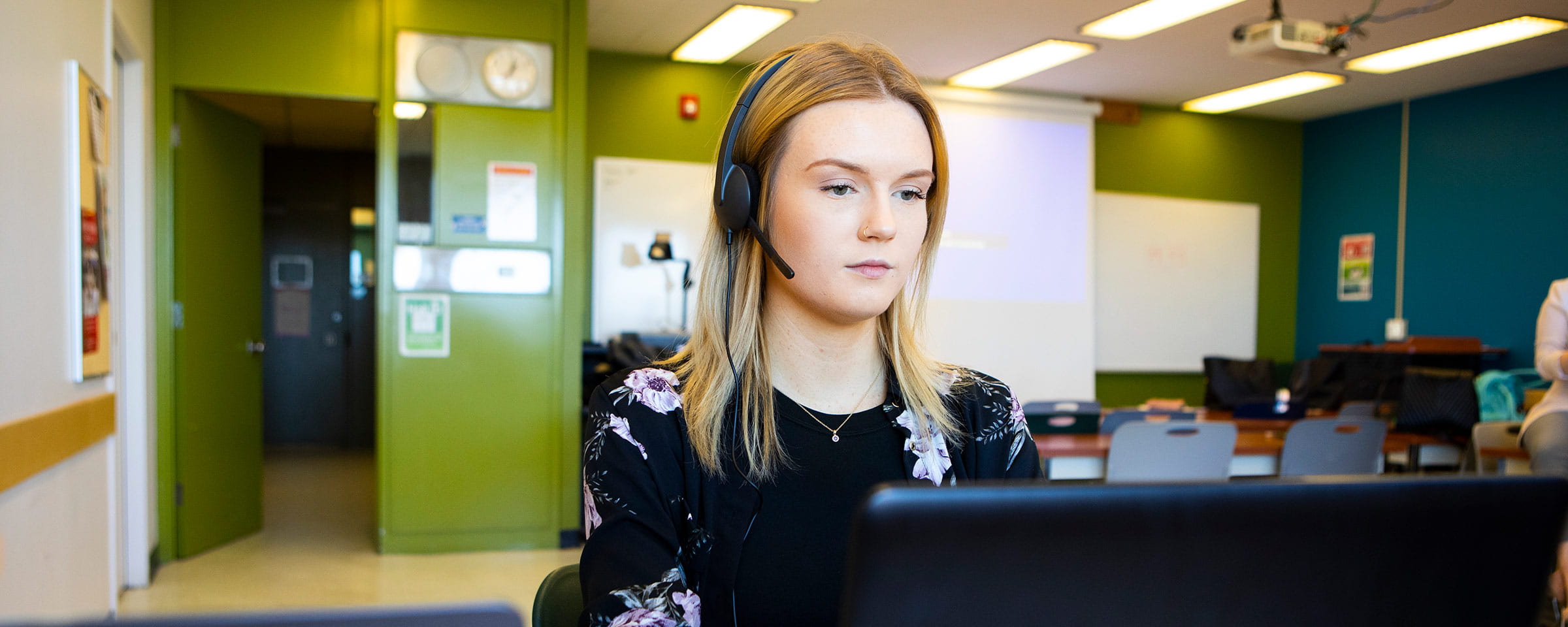


At RRC Polytech, Recognition of Prior Learning (RPL) processes evaluate and grant credit for prior learning that is equivalent to RRC Polytech courses/programs. This learning is applied to the requirements of your program.
The RPL process identifies, assesses, and recognizes formal learning, non-formal, and informal learning gained through work and life experience.
Do you have significant prior learning gained through education, work, life, military training, personal study, etc. that may be equivalent to RRC Polytech courses or programs? If your learning is current, relevant, and applicable to the RRC Polytech program you are enrolled in, RPL may be an option to consider.
RPL may:
For more information contact the RPL Advisor or attend an RPL Orientation Session.
The first step in the RPL process is to connect with the RPL Advisor or attend an RPL Orientation Session to learn more about transfer credit and/or applying for an RPL Assessment.
To formally participate in an RPL Assessment process, you must submit the RPL Assessment Application and pay the required fee.
See RPL Forms and Fees section for more information on RPL Fees and to access the RPL Assessment Application.
The RPL Orientation Session will introduce you to the concept of RPL. RPL Orientation Sessions are held monthly, online and in person, from September to June. During the RPL Orientation, you are encouraged to ask questions and see if your prior learning is a good fit for your course or program.
For more information and to self-register for an upcoming session visit: RPL Orientation Sessions
To request a Health Care Aide Equivalency Assessment for employment purposes in Manitoba, complete and submit the Health Care Aide Equivalency Application.
RPL Assessment processes measure prior non-formal and informal learning through a variety of assessment methods, depending upon and related to the specific course requirements and learning outcomes.
RPL Assessment methods vary, and you may be required to complete an assignment, project, interview, employer verification, exam, evidence collection, practical examination, skill demonstration, or other.
RRC Polytech uses several different RPL approaches to assess prior learning including:
Employers may be requested to verify the workplace skills and knowledge that are equal to the learning outcomes for a course. Employer verification is used in several RPL assessments and for Work Integrated Learning (WIL) and Coop placements.
If you are an Indigenous student and have relevant learning that was gained in your community (traditional knowledge practices, language skills, or other), this learning can be verified by local representatives such as Elders, Band Council, Hamlet Council and applied to your program requirements.
A portfolio is a specific and targeted collection of evidence that documents your learning from work and life experience and proves that it is equivalent to the learning outcomes in your course/program. A portfolio is only compiled for specific courses or programs at RRC Polytech.
Courses delivered through workplaces, industries or non-recognized educational institutions may be evaluated for RPL. Courses such as First Aid, WHMIS, Safety or other, may be eligible if the learning meets the requirements of your program.
The RPL process can take 4-6 weeks to complete. There may be delays during the summer break due to faculty availability.
RPL credit is awarded for the learning you gained from your work experience. Years of experience alone is not necessarily evidence of learning that is equivalent to RRC Polytech programs. You will need to demonstrate how your learning from experience is comparable and matches the level of learning required in your program.
RPL may reduce course loads and impact full-time status. It may have implications for International Students’ post-graduate work permit eligibility, as well as Financial Aid and student sponsorship eligibility.
If you have any questions, please contact:
Applications for RPL assessment(s) are processed for first course attempts only. If you have previously been registered in the same course, an RPL assessment is not available.
RRC Polytech faculty are the subject matter experts/assessors who assess the learning and award course credits.
RPL is recorded in the same way in which grades for a course are transcribed on the transcript. Where the learning cannot be measured using a rubric or other assessment tool the designation of CR (credit) will be used instead of a grade.
An appeal for an RPL process follows the policies outlined in the RRC Polytech Policy S3 – Student Appeals
RRC Polytech campuses are located on the lands of the Anishinaabeg, Ininiwak, Anishininwak, Dakota Oyate, and Denésuline, and the National Homeland of the Red River Métis.
We recognize and honour Treaty 3 Territory Shoal Lake 40 First Nation, the source of Winnipeg’s clean drinking water. In addition, we acknowledge Treaty Territories which provide us with access to electricity we use in both our personal and professional lives.